Choosing chooks - which chickens are best for you?
I had a question on the eight acres facebook page about what type of chickens I recommend (table and layers) and whether we keep them together. I thought it was a great question and I didn’t think I could answer that in one facebook comment, but it makes a great topic for a blog post....
Of course the actual ideal chicken for your situation is going to be different to my ideal chicken, but here’s some general points to consider:
- If you are going to breed chickens, its much easier to have one breed or type of chicken to do everything you want chickens to do, then you don’t have to worry about keeping multiple roosters and keeping flocks separate. However, if you have the space to also consider multiple types of poultry, for example, keep a laying hen breed, and turkeys for meat. Or ducks for eggs and chickens for meat, that is another solution. Different poultry eat different bugs, weeds and cause varying damage to mulched gardens. One of the main ideas of permaculture is to have each element perform many functions and each function satisfied by many elements. It also aims to develop a system with minimal work, and keeping too many different types of special chickens is extra work!
- If you are not intending to breed (and in my opinion, unless you live somewhere that you can’t keep a rooster, setting up to breed is the most self-sufficient option), then you can just buy whatever combination of breeds suits you, in that case there’s nothing wrong with just buying hybrid laying hens and meat chicks for maximum production (apart from the ethical issues of supporting this type of production model).
- On the other hand, you could choose to support heritage pure breeds of chicken. The main problem with buying pure-bred hens is that most breeds have now been corrupted by the show chicken industry. They are bred for the way they look, not the way they lay, so you can’t believe any of the old statistics for egg-laying, although in general, the bigger the bird, the fewer eggs she will lay (and the better it will be as a table bird).
- However, if you start with some pure-bred hens and start your own breeding program, you can start to select from the traits you want, and start to develop a breed that is best suited to your conditions.
- In that case, I would recommend a dual purpose bird that is also suited to your climate and predator conditions (for example, some birds naturally have more feathers for colder climates, and white birds are not ideal if you have a problem with airborne predators). Also consider if they will be free-ranging or kept in a coop, as some breeds have better temperaments for foraging and free-ranging.
Then we decided that we wanted hens that laid more eggs and our chicken-enthusiast friend bought us a trio of elderly White Leghorns as a wedding present, as they are a breed that has a reputation for laying eggs. The rooster, Ivan, was lovely, and they all had pearl earrings. We then travelled a ridiculous distance (one hour, one whole hour!) to buy four White Leghorn pullets to add some younger birds to the flock. They all looked nice, but they didn’t really lay any more eggs than the Rhode Island Reds.
| some of the chicks we've hatched |




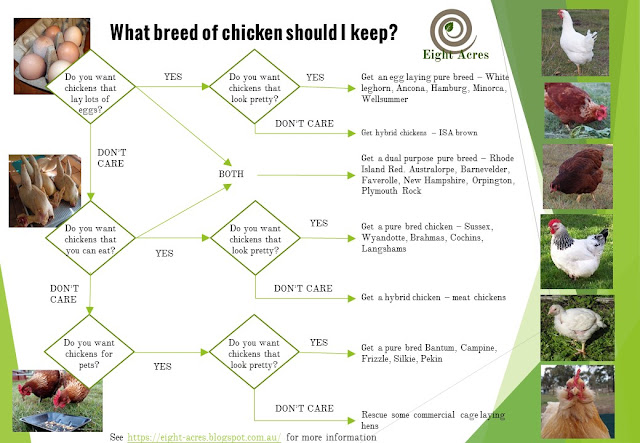












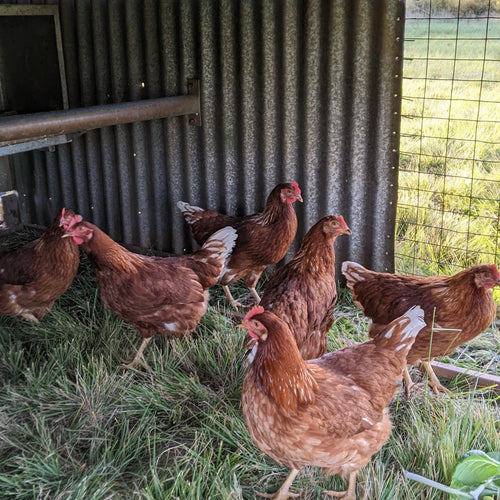
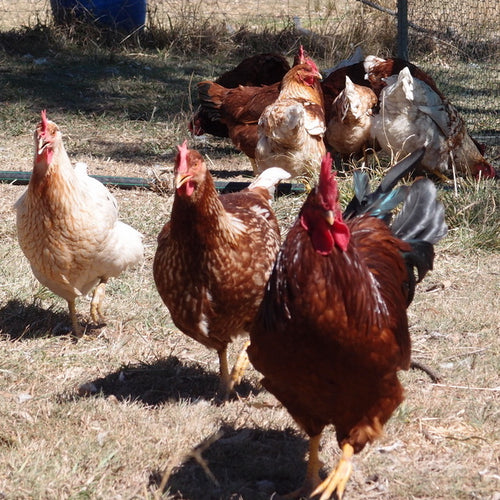
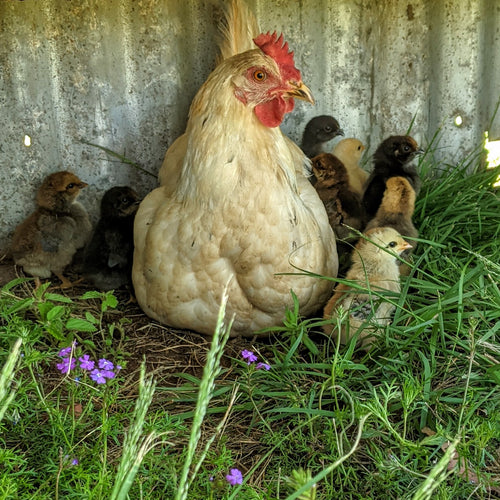
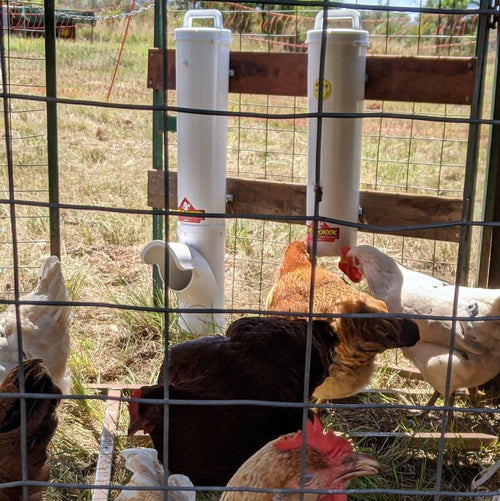



Leave a comment